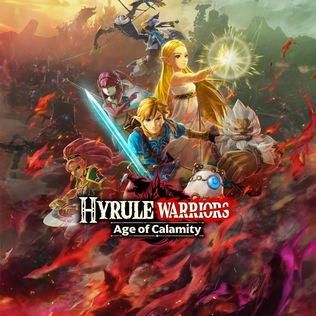
It is a serious infection in which the air sacs fill with pus and other liquid.Breath of the Wild recibiu a aclamacin universal da crtica, que o considerou como un dos mellores videoxogos de tdolos tempos, e foi galardoado con numerosos premios Game of the Year, entre outros. Information on drugs, drug targets, and more, used by researchers and health professionals globally.Pneumonia is an infection of one or both of the lungs caused by bacteria, viruses, or fungi. The voice tells him that Hyrule needs its hero once more.Link receives a strange item called a Sheikah Slate, which Access the worlds pharmaceutical knowledge database. The game opens with Link waking up from a deep sleep, beckoned by a mysterious voice. The Legend of Zelda: Breath of the Wild is the 19th installment in The Legend of Zelda series, as well as the 6th fully 3D installment, following The Legend of Zelda: Skyward Sword.
The most common is Streptococcus pneumoniae. This type is caused by various bacteria. The main types of pneumonia are:Bacterial pneumonia.
This type has somewhat different symptoms and physical signs and is referred to as atypical pneumonia. You may be more likely to get bacterial pneumonia if you have viral pneumonia.Mycoplasma pneumonia. This type is caused by various viruses, including the flu (influenza), and is responsible for about one-third of all pneumonia cases. Bacterial pneumonia can affect all ages, but you are at greater risk if you abuse alcohol, smoke cigarettes, are debilitated, have recently had surgery, have a respiratory disease or viral infection, or have a weakened immune system.Viral pneumonia.
However, the following groups are at the highest risk:The symptoms of bacterial pneumonia include:Confused mental state or delirium, especially in older peopleCough that produces green, yellow, or bloody mucusSharp or stabbing chest pain that’s worse with deep breathing or coughingShortness of breath that gets worse with activityEarly symptoms of viral pneumonia are the same as those of bacterial pneumonia, which may be followed by:Mycoplasma pneumonia has somewhat different symptoms, which include a severe cough that may produce mucus. There are other less common pneumonias that may be caused by other infections including fungi.Anyone can get pneumonia. It generally causes a mild, widespread pneumonia that affects all age groups.Other pneumonias.


This is the space between the lungs and chest wall. In this test, a sample of a fluid sample is taken from the pleural space. It helps to evaluate and diagnose lung problems, assess blockages, and take out samples of tissue and/or fluid for testing,Pleural fluid culture. This is direct exam of the bronchi (the main airways of the lungs) using a flexible tube (called a bronchoscope). CT scans are more detailed than regular X-rays.Bronchoscopy. A CT scan shows detailed images of any part of the body, including the bones, muscles, fat, and organs.
Antibiotics may also speed recovery from mycoplasma pneumonia and some special cases. Antibiotics are used for bacterial pneumonia. Most of the time, pneumonia is treated at home, but severe cases may be treated in the hospital. It is sent to the lab where it’s tested to find out which bacteria is causing the pneumonia.Treatment depends on the type of pneumonia you have. Fluid is pulled into a syringe attached to the needle.
Because of that, getting a flu shot every year can help prevent both the flu and pneumonia.There is also a pneumococcal vaccine. The flu is a common cause of pneumonia. Can pneumonia be prevented?Check with your healthcare provider about getting immunizations. They usually get better on their own.Other treatment may include eating well, increasing fluid intake, getting rest, oxygen therapy, pain medicine, fever control, and maybe cough-relief medicine if cough is severe.
Complications may include:Acute respiratory distress syndrome (ARDS). What are the complications of pneumonia?Most people with pneumonia respond well to treatment, but pneumonia can be very serious and even deadly.You are more likely to have complications if you are an older adult, a very young child, have a weakened immune system, or have a serious medical problem like diabetes or cirrhosis. Children younger than age 5 and adults ages 65 and older should get this shot.The pneumococcal shot is also recommended for all children and adults who are at increased risk of pneumococcal disease due to other health conditions.
This is when the infection gets into the blood. This requires the use of a breathing machine or ventilator.Sepsis. They may need to be drained with surgeryRespiratory failure. These are pockets of pus that form inside or around the lung.
Antibiotics are used for bacterial pneumonia. Tests used to look at the lungs, blood tests, and tests done on the sputum you cough up may also be used.Treatment depends on the type of pneumonia you have. Other symptoms include fever, shaking chills, shortness of breath, low energy, and extreme tiredness.Pneumonia can often be diagnosed with a thorough history and physical exam. The main types of pneumonia are bacterial, viral, and mycoplasma pneumonia.A cough that produces green, yellow, or bloody mucus is the most common symptom of pneumonia.
Other treatment may include a healthy diet, more fluids, rest, oxygen therapy, and medicine for pain, cough, and fever control.Most people with pneumonia respond well to treatment, but pneumonia can cause serious lung and infection problems. Most viral pneumonias don’t have a specific treatment and just get better on their own.


 0 kommentar(er)
0 kommentar(er)
